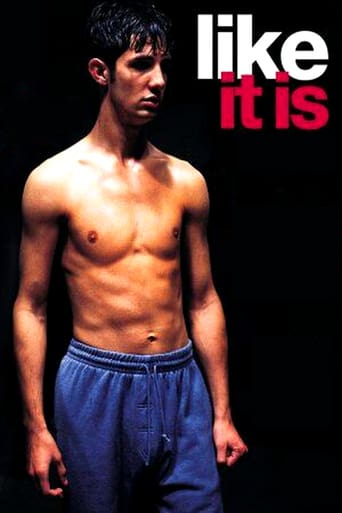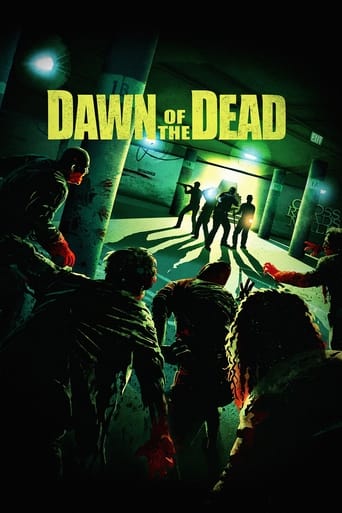I Don't Want to Sleep Alone (2007)
Rawang, an immigrant from Bangladesh living in awful conditions, takes pity on a Chinese man, Hsiao-kang, who is beaten up and left in the street. Rawang lovingly nurses him on a mattress he found. When he is almost healed, Hsiao-kang meets the waitress Chyi. His love for Rawang is put to the test.
Watch Trailer
Free Trial Channels
Cast


Similar titles
Reviews
SERIOUSLY. This is what the crap Hollywood still puts out?
Sadly Over-hyped
This movie was so-so. It had it's moments, but wasn't the greatest.
At first rather annoying in its heavy emphasis on reenactments, this movie ultimately proves fascinating, simply because the complicated, highly dramatic tale it tells still almost defies belief.
This is a strange film, very strange, and not the type of film to get a release outside of a festival. There was virtually no dialogue for two hours - mostly visuals with background noises and music (played in the scene, not dubbed over). We see various strugglers in the streets and buildings of Malaysia and get a strong sense of alienation.The film is almost a photo essay, constructed largely of beautifully composed shots of urban decay. There's the flooded building site, modest abodes, a huge butterfly and the surreal-looking streets choked in smoke from Indonesian bushfires. The film challenges an audience's patience and I was surprised there were only a few walkouts at the Melbourne International Film Festival I attended. My partner left after 90 minutes, and shortly after a little more action started to appear.A sex scene interrupted by the smoke was amusing. The final take is particularly poignant and poetic. The film is not something I would generally recommend to mainstream audiences, but if you like something unusual during a festival, it might be worth a look in. Just be prepared to be patient.
What would you do l if you had to share an old flea-ridden mattress with a stranger in a scorching hot and humid Kuala Lumpur? How would you feel if you think you are sleeping with the person whom you feel attached to but realise that your rival in love is also in the bed? It's true that "I Don't Want to Sleep Alone", Tsai Ming-liang's 9th film and the first set in his hometown in Malaysia, is not a pleasant film to digest on a tranquil weekend. Yet I'm sure the gloomy reality won't prevent Tsai's fans or sensitive filmgoers from finding some hopeful and frivolous moments in the film. Superficially this slow-paced film explores the lives of lower-middle class workers and examines the reality of Kuala Lumpur as a multilingual and multiracial city. The best part of the film does not rest in the vivid representation of the workers and the city, but Tsai's passionate concern for human beings, especially their extremely simple wish to be loved and their fear of loneliness. Homeless Xiaokang (Lee Kang-sheng, the director's alter-ego) was robbed and beaten by swindlers in a rundown area of Kuala Lumpur, and brought home by Rawang, a Malay construction worker who is superbly played by Norman Atun. The kind Rawang lets Xiaokang sleep on an old mattress that he picks up from the street. Parallel to Rawang's nursing Xiaolang is the teahouse waitress Qi (Chen Xiangqi)'s taking care of the bed-ridden paralysed son of the teahouse owner (Pearly Chua). Unlike Rawang who finds stability and happiness in taking care of Xiaokang, Qi is desperate to seek for a new life, more than ever after her encounter with Xiaokang who awakens long repressed desires in her. The repressed middle-aged female teahouse owner is also attracted to the young body of Xiaokang, but astonishingly realises that Xiaokang's appearance bears resemblance to her son. Unexpected heavy smog from Indonesia begins to attack the city. In the seriously-polluted city, it is the common "syndrome" combination of loneliness, desire and longing for love and being loved that bring all the characters together. The chosen music is a significant supplement to the limited dialogue. The multi-racial background of immigrants in Kuala Lumpur is introduced through an aural mosaic of Malay folksongs, Chinese songs, Cantonese operas, and Bollywood music. You can easily identity the workers' ethnic background from what they listen, though of course also from the way they eat and dress. Even the rhythm of daily life in Kuala Lumpur is revealed through the sound. The noise from water-inserting in the building site where Rawang works is placed against the vague sound of Alazan from a Mosque. The local-styled coffee shop (kopitiam) is boisterous with mahjong playing sound, Malay news reporting, multilingual chatting sounds from the customers, and even the sound of plastic bags when the waitress Qi wraps up takeaway food for the customers. The lively scene on the ground floor is in drastic contrast to the silence of the first floor where the shop owner's comatose son (also played by Li Kang-sheng) lies motionlessly. The Cantonese love-story opera and the old Chinese love song ingeniously reflect the forlorn characters' emerging desires. Caught either in a poor or repressed situation, the characters all wriggle with intense desire, and endeavour to build connections with people. Despite all the alienations (Rawang is isolated from his peer workers and sticks to Xiaokang) and frustrations (Qi and Xiaokang's clumsy attempt to make love in masks), there is always a solution. After all, happiness can be enormously simple, such as merely owning a mattress and nursing a stranger until he recovers. Bearing Tsai's familiar stylistic conceits such as long takes and a static camera, usual concerns on the alienation and yearning of human beings and must-have scenes such as running water and sex, "I Don't Want to Sleep Alone" however treats isolation as part of human nature, instead of a syndrome caused by the ultra-modernised environment as in Tsai's earlier films. Once again, Tsai proved he is one of those love-him-or-hate-him auteurs as applauses and criticisms were both heard when I walked out of the cinema. If I were to choose between the two poles, I would go for the former simply because of Tsai's minimalist techniques and meditative sensitivity. Despite not as amusing as "Hole", or as tense as "Wayward Cloud", "A Don't Want to Sleep Alone" is easily Tsai's most warmhearted film to date.
I don't want to sleep alone - if you have incredible patience, then you probably won't have to. Otherwise, within 10 minutes, you'll fall into deep sleep, as did somebody in the same screening I went to. I have put off writing the review to see if my opinion would change, and I dare say it has mellowed down. I would have loved to condemn this Tsai Ming-Liang movie, but just like any other movie, its bound to have its lovers and detractors. I for one, disliked the film, but acknowledge its technical merits.Simply put, the movie tells 2 stories, one involving a man (played by Tsai's muse Lee Kang- Sheng) being attacked by gangsters, and taken in and cared for by a construction worker (Norman Atun), while the other story involves a comatose man (also starring Lee) being nursed by Chyi (Chen Shiang-Chyi), a coffeeshop waitress working for Pearlly Chua's sexually repressed coffeeshop owner. In classic Tsai style, these stories are told in long, static shots, little or no dialogue, and through songs. The usual themes of alienation, repression, loneliness etc (fill in the blanks, you know the themes already) is commonplace in the movie, so much so that they become turn offs.At times you wonder if it's a comedy of absurdity, and if the movie is a waste of film and resources. You also scratch your head wondering if those who have praised the movie sky high are out of their minds, or if they're following the bandwagon and praising the emperor's new clothes. However, I did enjoy the first few minutes of the movie when Lee's wandering man walked around the seedier streets of KL. In fact, there isn't really much clues that it's KL, it can be Geylang for all you care. And possibly every dark corner and roadside become commonplace as the narrative moves along.If anything, Tsai is an inspiration, for his minimalist art form that makes as if almost anyone could pick up a camera, gather some actors (or friends with zero facial expression - you can mask them, or film from across the road so there are no close up shots to betray their lack of ability) around, and make something out of nothing. Just as how crazy men are called eccentric rather than mad if they have power and money, you'll just have to convince that you're an auteur with an amazing eye for details, instead of being called a crap filmmaker if you try and emulate his style.To some it's pretentious, to others it's a contemporary classic in the works. The only way to best judge if you would like the movie, is to watch it yourself. Just be warned that you'll either be enamoured by it, or come out swearing every vulgarity you've ever known. I sure heard many colourful words when the mattress started to float. If compared to his previous work The Wayward Cloud, I'd find that a masterpiece. But then again, I've always liked my movies with song, dance, things that move, not just a reluctant handjob.Will I watch future Tsai's works? Sure, if only as a test of true patience, for film school lessons and references, and to share in the perverse joy of listening out for newbies to Tsai movies as they exercise their freedom of colourful speech. They are a vocal bunch after all. Recommended only for hard core Tsai fans, and no one else.
I've attended the Singapore gala premier of Tsai Ming Liang's I Don't Want to Sleep Alone 3 hours ago, and here's the verdict: The movie calms you down, and let it search for you want. That's what the supporting actress Pearlly Chua said to the audience before the movie begins. And indeed, it calms you down.Tsai's 1st attemp in his country of origin Malaysia has proved to be a success, despite being banned by the government back in Malaysia for portraying the other side of Malaysia, where it so happens that 2007 is a significant year for Malaysia, as it is a year where Malaysia is drawing people around the world to visit Malaysia for its beauty and unique blend of culture. However, I Don't Want to Sleep Alone tells the other side of Malaysia, in terms of the lifestyle of Malaysian Chinese and Bangladeshi workers and the surroundings, makes the government feel that the film is damaging the image of the country.And why is that so? In the film, were were introduced to a homeless man and a paralyzed man (both played by Lee Kang Sheng, Tsai's muse cum favorite actor), a foreign worker (Norman Atun), a waitress in a neighborhood cafe (Chen Hsiang Chyi) and her lady boss (Pearlly Chua), who was the mother of the paralyzed man. The homeless man was robbed by a group of thugs and was saved by a group of foreign workers. A worker showers care and concern for the homeless man and gave him food and lodge, and a share of the old mattress found at a garbage dump. On the other side, waitress works in a neighborhood cafe and takes care of the paralyzed man. The homeless man met the waitress and share the feelings for each other by following each other around in the neighborhood.Compared to his previous The Wayward Cloud, a musical that discuss sex, desire and crave for one another in a unusual manner (think of using watermelons to express love), Tsai is going back to his usual style of presentation in I Don't Want. Do not expect any dialogues among the cast, let alone the expression of love for each other using songs and dance. What you get is 115 minutess of peace, without any music to go along with. What you see and hear are sounds from the surroundings in our daily life. Think scrubbing of dirty clothes, the honks in a crowded traffic, songs from radio stations and Indian musicals from a home video shop.The film greatly explores the cravings and desires every human being wants. The worker isolates himself from his peers and stick with the homeless man, the homeless man follows the waitress and eventually, the lady boss had sex with the homeless man at the backyard. Tsai uses the emotional world of ordinary human beings to explore the desires and cravings thru something that one tend to missed out from the daily life.For moviegoers who finds 3 minutes of motionless scenes a drag, I Don't Want is definitely not a film for you. At the start of the movie, we see a paralyzed man lying motionlessly on a bed for about 2 minutes. And be prepared that for the next few scenes, it would be focused for an average of 2 minutes per scene.And so I Don't Want works out under this formula: Malaysian film + Tsai Ming Liang = I Don't Want To Sleep Alone.Overall, it is peaceful and quiet, without much dialogues to go along with. If you are getting tired of normal noisy flicks, let I Don't Want to Sleep Alone to cleanse your preference of movies.Go see it. You will feel calm after the show. Malaysian film + Tsai Ming Liang = I Don't Want To Sleep Alone.


















